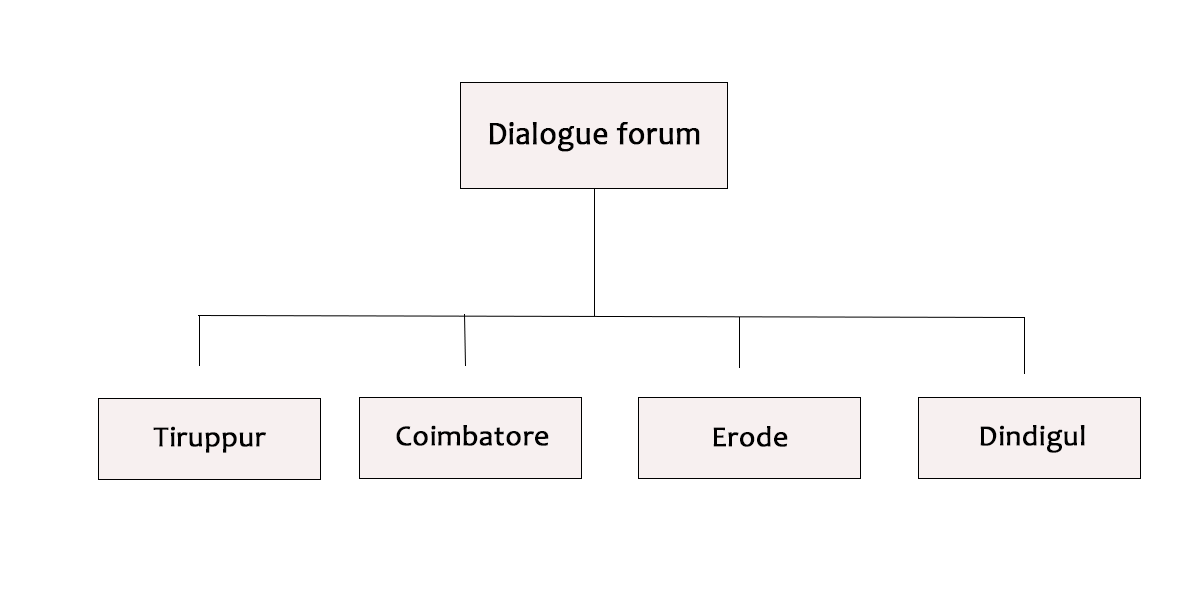Social Dialogues

Social dialogue (or social concentration) is the process whereby social partners (trade unions and employer organisations) negotiate, often in collaboration with the government, to influence the arrangement and development of work-related issues, labour market policies, social protection, taxation or other economic policies.
Social dialogue at the district and National level refers to the cooperation between social partners, i.e. workers’ and employers’ organizations, with the Government. It can address a wide range of issues from labour relations to wider social and economic challenges.
In-order to ensure the fair, ethical and sustainable labour practices in the spinning and garment sector, MSI TN intends to create transparent social dialogue among all stakeholders of the textile value chain adhering to tripartite concept of bringing Govt. agencies, Employer and the Employee to a common platform to adhere sustainable Textiles aims towards systemic improvements of labour conditions in the Tamil Nadu Textile and Garment industry with a thrust to spinning sector.MSI-TN continues to do the social dialogue and trainings in the spinning mills and garments. “Mutual Understanding”, has worthwhile characteristics that would always lead to getting the positive results and caring one another unconditionally without any expectations. In order to practically and pragmatically apply this, MSI-TN is continuously making efforts to build mutual understanding among stakeholders in order to improve workers’ working condition in the textile industries.
Thematic discussions on the following were successfully carried out in four working districts;
“Challenges in regularising hostels and countering sexual harassment on women in textile mills”
In four working regions, “District Level Forum” (DLF) Meetings, held and it was healthy discussion and dialogue done along with DSWO, DPCU, NCLP and local stakeholders and during the discussion forum, MSI TN was assured to provide all assistance to ensure the hostels facilities like – registrations, license approval, renewal and proper action & awareness on sexual harassment on women in textile mills.
“Ensuring Social Security Benefits – ESIS & EPFS”
On a monthly agenda to ensure the stakeholders rapport, MSI TN holds social dialogue on a thematic discussion ensuring social security benefits in terms of ESIS & EPFS and this thematic discussion carried out by different stakeholders in all four districts.
It was swell said, “Uniqueness needs to be celebrated, differences need to be respected and similarities need to be accepted”. As all the different stakeholders such as industrial players, government, trade unions, NGOs and workers have both differences and similarities. But, one of the vital similarities is to ensure workers’ welfare. Yet, in this juncture, MSI TN plays a prudent role in bringing all these stakeholders under one umbrella to have a fruitful dialogue for the welfare of employer as well employees.
“Enforcing Labour laws”
Yet to have the social dialogue on above mentioned thematic discussion and soon the fruitful updates will reflect on this page……..
Social dialogue is all types of negotiation, consultation or simply exchange of information between, or among, representatives of governments, employers and workers, on issues of common interest relating to economic and social policy. It can exist as a tripartite process, with the government as an official party to the dialogue or it may consist of bipartite relations only between labour and management or trade unions and employers' organizations, with or without indirect government involvement. Social dialogue processes can be informal or institutionalised, and often it is a combination of the two. It can take place at the national, regional or at enterprise level. It can be inter-professional, sectoral or a combination of these.
Decent Employment
Decent work sums up the aspirations of people in their working lives. It involves opportunities for work that is productive and delivers a fair income, security in the workplace and social protection for families, better prospects for personal development and social integration, freedom for people to express their concerns, organize and participate in the decisions that affect their lives and equality of opportunity and treatment for all women and men.
The MSI-TN focuses to attain the decent Employment by the youth and the adult in textile industries through developing job and ability skills.